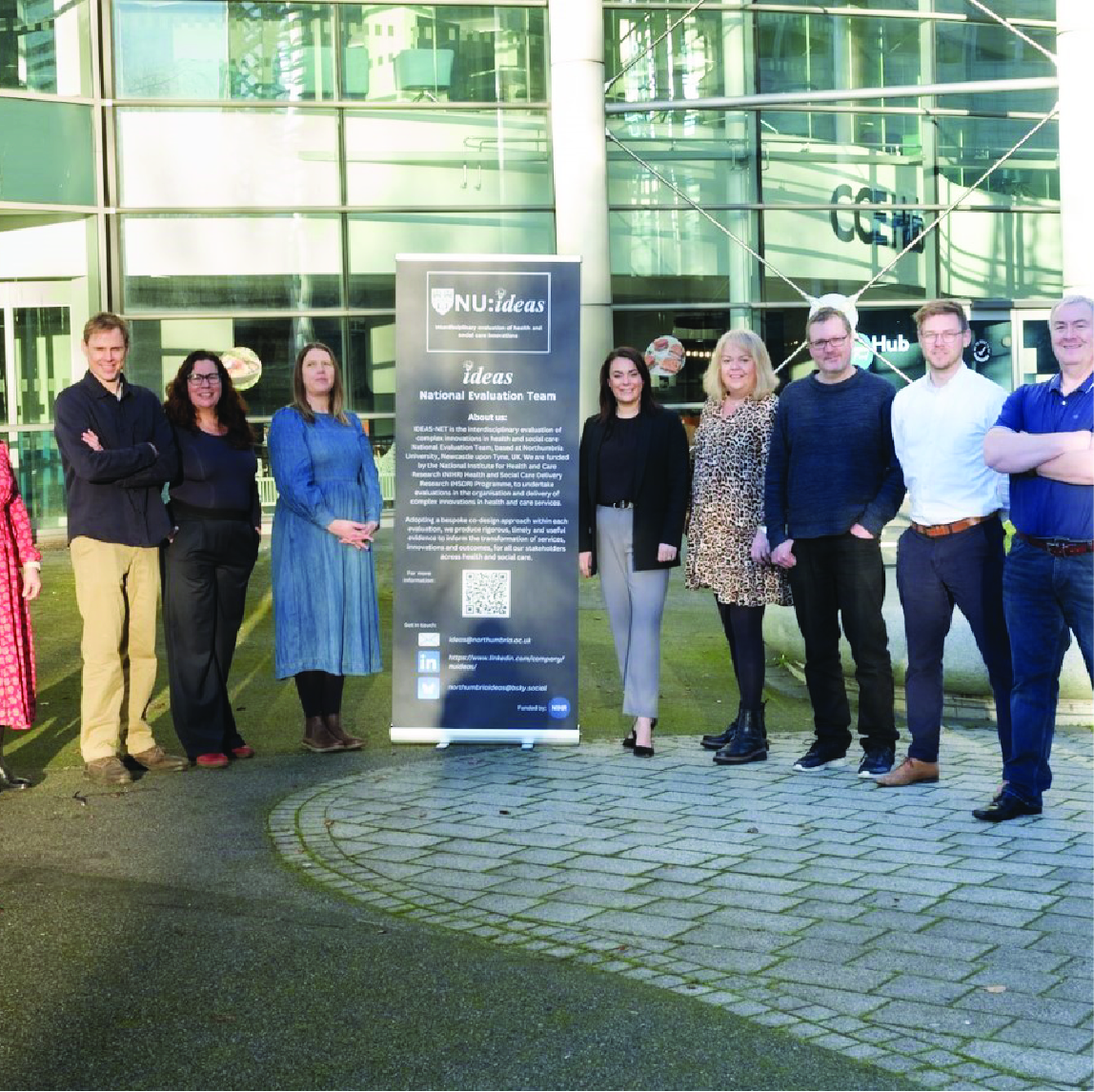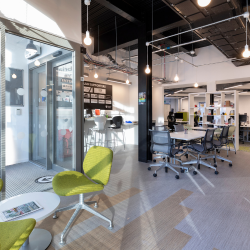-
Study
-
Quick Links
- Course Search
- Unlock Your Potential
- Still time to Apply
- Higher and Degree Apprenticeships
- Continuing Professional Development
- Still time to apply
-
Undergraduate
- Course Search
- Application Guides
- UCAS Exhibitions
- Foundation Years
- Fees and Funding
- School & College Outreach
- Information for Parents
-
Postgraduate
- Course Search
- Application Guide
- Postgraduate Research Degrees
- Flexible Learning
- Fees and Funding
- Change Direction
- Register your Interest
-
Student Life
- Students' Union
- The Hub - Student Blog
- Accommodation
- Northumbria Sport
- Support for Students
-
Experience Northumbria
- Open Days & Events
- Virtual Tours
- Campus Tours
- Life in Newcastle
-
-
International
International
Northumbria’s global footprint touches every continent across the world, through our global partnerships across 17 institutions in 10 countries, to our 277,000 strong alumni community and 150 recruitment partners – we prepare our students for the challenges of tomorrow. Discover more about how to join Northumbria’s global family or our partnerships.
View our Global Footprint-
Quick Links
- Course Search
- Undergraduate Study
- Postgraduate Study
- Information for Parents
- London Campus
- Northumbria Pathway
- Sign up for Information
-
International Students
- Information for Students
- International Events
- Application Guide
- Entry Requirements and Education Country Agents
- Global Offices
- English Requirements
- English Language Centre
- International student support
-
International Fees and Funding
- International Undergraduate Fees
- International Undergraduate Funding
- International Masters Fees
- International Masters Funding
- International Postgraduate Research Fees
- International Postgraduate Research Funding
-
International Partners
- Agent and Representative Network
- Global Partnerships
- Global Community
-
International Mobility
- Information for Northumbria Students
- Information for Incoming Exchange Students
-
-
Business
Business
The world is changing faster than ever before. The future is there to be won by organisations who find ways to turn today's possibilities into tomorrows competitive edge. In a connected world, collaboration can be the key to success.
More on our Business Services -
Research
Research
Northumbria is a research-rich, business-focused, professional university with a global reputation for academic quality. We conduct ground-breaking research that is responsive to the science & technology, health & well being, economic and social and arts & cultural needs for the communities
Discover more about our Research -
About Us
-
About Northumbria
- Our Strategy
- Our Staff
- Place and Partnerships
- Leadership & Governance
- Academic Departments
- University Services
- History of Northumbria
- Contact us
- Online Shop
-
-
Alumni
Alumni
Northumbria University is renowned for the calibre of its business-ready graduates. Our alumni network has over 246,000 graduates based in 178 countries worldwide in a range of sectors, our alumni are making a real impact on the world.
Our Alumni - Work For Us
What will I learn on this module?
Your learning on this module will start from a client brief for a project. The brief for the project will be based upon a real project and will be communicated in a realistic manner through correspondence and role-play client meetings. In groups, you will explore the meaning of the brief and the business relationship with the client, develop a design team and key objectives and milestones and then work on options for the technical solution of the problem, considering factors such as cost, required construction technology and techniques, sustainability issues, health, safety and design risk management and the requirements for the business success of the different parties involved. At all stages in the module you will engage in reflective consideration of your learning, which will be inspired by other design and construction examples taken from industry.
How will I learn on this module?
This module is based around the completion of a design according to practice simulating that in industry. An initial short series of lectures will present the project brief and supporting resources and will assist you in identifying the problem parameters and beginning to consider solutions. Thereafter you will work in groups to formulate design options and choose a final solution, this process being supported by weekly workshop sessions with the opportunity to work together, discuss issues with staff and to hear short presentations on issues of relevance to all groups where these arise. Some workshop time may take the form of role-play client meetings where you will learn to act as a designer in industry, relating to their client. There may be occasions within the semester where normal teaching will be suspended to allow your learning to be supplemented by a range of activities such as design workshops, guest presentations, professional body events, site visits and field work.
How will I be supported academically on this module?
You will be supported in workshops, giving you ample opportunity to ask questions regarding the design task, as well as to seek specific help, for example with the creation of the assessment submissions. At other times, you will have regular access to University academic staff online, including the use of discussion boards and chat rooms in the University’s virtual learning environment (VLE). This will allow you to access support regularly at convenient times.
The module and the wider programme teams will also offer a supportive approach, enabling you to quickly and easily access and speak to any member of the programme team, as required.
The University Library and other student services also offer a variety of academic skills training , which you can access as needed.
What will I be expected to read on this module?
All modules at Northumbria include a range of reading materials that students are expected to engage with. Online reading lists (provided after enrolment) give you access to your reading material for your modules. The Library works in partnership with your module tutors to ensure you have access to the material that you need.
What will I be expected to achieve?
Knowledge & Understanding:
1. Analyse complex problems systematically and creatively, demonstrating application of rigour in the decision process when faced with incomplete data.
2. Synthesize knowledge of the technical, business, financial, commercial, structural analyses and design and geotechnical design issues pertinent to the project and work within the constraints imposed, to deliver a design with the appropriate level of technical difficulty.
Intellectual / Professional skills & abilities:
3. Create a project design schedule adopting information from new theories, models and/or methods.
Personal Values Attributes (Global / Cultural awareness, Ethics, Curiosity) (PVA):
4. Apply engineering techniques accounting for a breadth of commercial and technical constraints and communicate these to the client effectively.
How will I be assessed?
Knowledge & Understanding:
1. Analyse complex problems systematically and creatively, demonstrating application of rigour in the decision process when faced with incomplete data.
2. Synthesize knowledge of the technical, business, financial, commercial, structural analyses and design and geotechnical design issues pertinent to the project and work within the constraints imposed, to deliver a design with the appropriate level of technical difficulty.
Intellectual / Professional skills & abilities:
3. Create a project design schedule adopting information from new theories, models and/or methods.
Personal Values Attributes (Global / Cultural awareness, Ethics, Curiosity) (PVA):
4. Apply engineering techniques accounting for a breadth of commercial and technical constraints and communicate these to the client effectively. Module Learning Outcomes (MLOs) (Max. of five in total*, for standard 20-credit modules)
* this can increase to a maximum of 10, for modules with more than 20 credits
What will I be expected to achieve? How will I be assessed?
Please give details of all formative and summative assessment process indicating which MLOs will be addressed and how feedback will be provided. Programme (Level) Learning Outcomes that this module contributes to:
Please refer to the programme specification for the PLOs
Knowledge & Understanding:
1. Analyse complex problems systematically and creatively, demonstrating application of rigour in the decision process when faced with incomplete data.
2. Synthesize knowledge of the technical, business, financial, commercial, structural analyses and design and geotechnical design issues pertinent to the project and work within the constraints imposed, to deliver a design with the appropriate level of technical difficulty.
Intellectual / Professional skills & abilities:
3. Create a project design schedule adopting information from new theories, models and/or methods.
Personal Values Attributes (Global / Cultural awareness, Ethics, Curiosity) (PVA):
4. Apply engineering techniques accounting for a breadth of commercial and technical constraints and communicate these to the client effectively.
You will have two components of summative assessment.
The first of which is will be a group coursework (maximum 2500 words) in which your group will demonstrate the ability to capture the design brief and identify the various issues and constraints which will affect the final design solution. This will assess MLOs 2 and 3 and will be worth 30% of the module.
At the end of the module you will prepare a design report on your final design including text, calculations and drawings of your final solution together with a design risk register and outline method statement for its implementation. This will require you to identify your individual contribution to your group’s design. This will assess MLOs 1 and 4 and will be worth 70% of the module.
Formative assessment will be by means of regular meetings with academic staff during workshops, many of which will take the form of client meetings, roleplaying the design process in industry. You may also be asked to give presentations detailing your progress, you will receive formative feedback on these which can be fed into your learning and your summative assessments.
Knowledge and Understanding
KU1, KU3, KU4
Intellectual / Professional Skills and Abilities:
IPSA1, IPSA2
Personal Values Attributes (Global / Cultural awareness, Ethics, Curiosity) (PVA):
• PVA2, PVA3
Knowledge and Understanding
Intellectual / Professional Skills and Abilities:
Personal Values Attributes (Global / Cultural awareness, Ethics, Curiosity) (PVA):
Pre-requisite(s)
N/A
Co-requisite(s)
N/A
Module abstract
Design is central to the role of the civil engineer. In your career, you will be involved in designing civil engineering projects to improve human life, economic performance and the environment and an appreciation of all the processes involved in design is central to your employability. This module allows you to gain an understanding of the complete process of design in the context of a realistic project encompassing a range of different disciplines within civil engineering, and considering technical, social and business factors linked with creating civil engineering designs. Completing the module will allow you to fit rapidly into design teams in civil engineering consultancies or contracting organizations upon graduation.
Course info
UCAS Code H200
Credits 20
Level of Study Undergraduate
Mode of Study 3 years Full Time or 4 years with a placement (sandwich)/study abroad
Department Mechanical and Construction Engineering
Location City Campus, Northumbria University
City Newcastle
Start September 2025 or September 2026
All information is accurate at the time of sharing.
Full time Courses are primarily delivered via on-campus face to face learning but could include elements of online learning. Most courses run as planned and as promoted on our website and via our marketing materials, but if there are any substantial changes (as determined by the Competition and Markets Authority) to a course or there is the potential that course may be withdrawn, we will notify all affected applicants as soon as possible with advice and guidance regarding their options. It is also important to be aware that optional modules listed on course pages may be subject to change depending on uptake numbers each year.
Contact time is subject to increase or decrease in line with possible restrictions imposed by the government or the University in the interest of maintaining the health and safety and wellbeing of students, staff, and visitors if this is deemed necessary in future.
Useful Links
Find out about our distinctive approach at
www.northumbria.ac.uk/exp
Admissions Terms and Conditions
northumbria.ac.uk/terms
Fees and Funding
northumbria.ac.uk/fees
Admissions Policy
northumbria.ac.uk/adpolicy
Admissions Complaints Policy
northumbria.ac.uk/complaints









